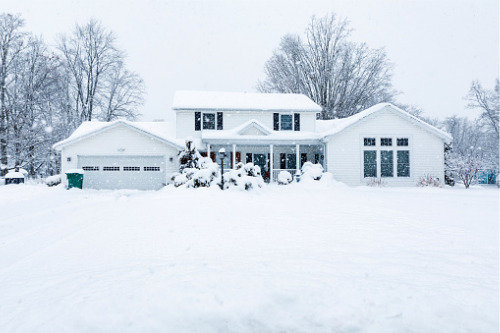Only one major urban centre failed to show a reduction in quarterly growth

Quarterly house price value growth has dropped for the second consecutive month, according to the latest QV House Price Index.
According to the index, the average value increased by 6.6% to $943,184 across New Zealand over the quarter ended in June 2021, down from the 8.8% quarterly growth in May. It represents an increase of 25.6% year-on-year, up from 23.7% last month.
In the Auckland region, the average value is $1,347,092, up 6.2% over the last quarter – with annual growth of 23.4%, up from the 21.8% year-on-year growth in May.
Read more: House price value growth plummets across main centres – QV
The index revealed that all 16 major urban centres QV monitors, except Rotorua, showed a reduction in quarterly growth compared to last month, with the strongest value gains over the past three months coming from Hastings at 8.6% growth in value, down from 11.4% last month. Palmerston North closely followed at 8.5% growth, down from 10.7% quarterly growth last month.
Tauranga dominated the major centres for the second consecutive month – with 8.3% value growth over the past three months. However, the figure was down from 10.2% quarterly value growth in May. Christchurch joined Tauranga on an 8.3% quarterly growth, but both were down from around 10% quarterly growth last month.
Meanwhile, Central New Zealand continues to show the most significant annual rate of value growth, with the three fastest-growing regions all in the lower North Island. Values in the Manawatu-Whanganui region have risen by 36.0% in the past year, while the greater Wellington and Hawke’s Bay regions have experienced annual growth of 33.3% and 31.5%, respectively.
By contrast, the three lowest annual growth rates are all in the South Island – with the Otago region experiencing an 18.6% increase, Southland 19.1%, and Tasman at 22.9% annual growth.
Read more: CoreLogic delivers latest data on New Zealand property prices
QV general manager David Nagel said it was still too early to say the market had turned. However, the new data is good news for the government and regulators concerned about the financial risks of an “overheated property market.”
“This easing comes after a range of government policy announcements earlier this year to dampen activity by property investors and speculators, while there’s also plenty of chatter about interest rates rising later next year,” Nagel said. “But we’re also now into the seasonal downturn that normally accompanies the cooler months, so it’s difficult to attribute the cause to any single thing.”
Nagel noted that the closed borders allow the housing supply chain to “catch its breath” with record rates of new homes being constructed, particularly in the main centres.
“But while interest rates are still at record lows, accompanied with a dearth of property listings in most parts of the country, it’s unlikely that we will see house values fall any time soon,” he continued.
“We’ll likely see a continued slowing in the rate of price increases over the coming months as the property market absorbs the recent changes and winter really sets in.”



